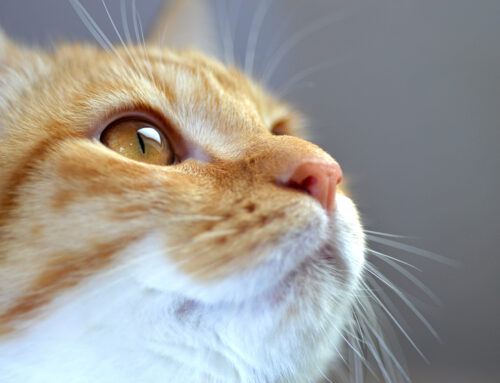Growing up around pets creates wonderful memories, teaches responsibility and care, and helps nurture a love for animals. But pets can be costly and hard work. You, the parent, are responsible for making sure your pet is happy and healthy, not your child. For children, the novelty can wear off, leaving you as the caregiver. You have to want it too! So, take time to think, read articles and research the particular pet’s needs beforehand. Talk to friends and family and to our team about your ideas. Your lifestyle, financial means, children’s age, and the house you live in have a massive impact on what pet will be the right fit for your family.
What considerations are there?
Dogs:
- are sociable so should never be left alone more than 4 hours. If you work full-time and would use doggy daycare, have you considered this extra cost?
- need indoor space, a garden for toileting, and daily walks for mental and physical stimulation even if they have a garden. Exercise needs vary with breed and age, so speak to our team about which breed may suit. Even small dogs need around 20-60 minutes daily, whatever the weather.
● can live around 15 years, costing roughly £21-33,000 (€24,000-38,000) over a lifetime. Insurance is essential for unexpected illness or injury, and don’t forget vaccinations, neutering, microchipping, and regular worming and flea treatment are essential.
Cats:
- are quite solitary animals, so will be less affected by periods alone.
- that go outdoors should ideally have a cat-flap to give them freedom to come and go as they please.
- can be kept indoors, but will need more mental stimulation and play. Each cat needs a clean litter tray, food and water source, and hiding places.
- can live around 15 years, costing £17,000 (€20,000) over a lifetime. As with dogs, regular vet checks and insurance to cover illness/injury are vital.
Rabbits:
- require space for an outdoor hutch and a long (8ft) wide run they can access during the daytime.
- need the company of other rabbits or they become lonely and stressed.
- cost around £90 (€100) per month per pair, and can live up to 9 years. Insurance will cover illness and injury.
- are generally friendly and benefit from regular human company, but it takes time to clean out their hutch and environment.
- have specific dietary requirements that will need researching.
Guinea pigs:
- need a hutch and access to a large run (6ft), so a garden is essential.
- need the company of other guinea pigs as they are very sociable. Starting costs may set you back around £400 (€460) and their average lifespan is around 4 years, costing around £70 (€80) per month.
- enjoy play-time and also need regular cage cleaning.
- have a specialised diet as, unlike many animals, they need Vitamin C – so don’t feed them cheaper rabbit food.
Small pets:
- live variable lifespans. Chinchillas can live up to 22 years costing around £5000 (€6000) in a lifetime, whereas the average lifespan of a hamster is around 2 years, costing around £1000 (€1200). Don’t forget vets bills.
- do need space. Chinchillas need large 2m squared cages. Hamsters also need a bigger cage than you may think to keep them happy.
- are often sociable and preferring to live in groups or pairs with increasing costs and space needs.
- are often nocturnal, so will be noisy at night.
- can be friendly if gently handled from a young age, but many are nervous and can bite so may not be ideal for children.
- often enjoy playing but it is not as essential as with some other pets. Time must still be allowed for play and cage cleaning.
Rats:
- are often overlooked but are intelligent, fun and less nervous than other small pets. They like the company of other same-sex rats but also enjoy human companionship, like to play and even do tricks. They are more sociable than some other small pets so a good choice for children willing to give an hour a day of outside play at least.
- live around 2-3 years.
- need a large cage in a draught free but busy part of the house, that is checked regularly and cleaned weekly.
Fish
- may be ideal if you are short on time or money but want a pet.
- will live 10 years on average, but some up to 40 years so it’s a big time commitment.
- initially cost as high as £1000 (€1200) for the tank and equipment, but ongoing costs are low so on average in a lifetime they cost around £2000 (€2300)
- care (including veterinary) is very specialist and you would need to see an aquatic specialist to find out the specific needs of the fish you buy.
- are quite low maintenance, other than weekly tank cleaning.
What if I have done my research and its not the right thing to get a pet?
Saying no is difficult but better than having a bad experience for your family and the pet. Explain to your child that the pet may be sad or stressed if you can’t care for them. Consider alternatives to satisfy their urge:
- Young children have oodles of imagination so consider a toy version, or a robotic pet. They can cuddle it, love it and practice care but if the novelty wears off no harm is done, and you are not stuck with the care.
- Get them a subscription to an animal magazine, or sponsor an animal. This teaches them how to be a great future pet owner for when the time is right, and supports charities while helping animals.
- If you doubt your child’s true commitment, get them a book about the pet they want. If they show commitment, maybe you can reconsider.
- Offer to pet sit for a friend/relative or school pet. You can try before you buy and see if it works for your family.
- Visit a reputable conservation park, zoo or children’s farm. Children can experience different animals without needing to look after one. Older children could do experience days and see that looking after animals is hard work!
*average costs sourced from UK pet charity the PDSA
Want more advice? Give us a ring and talk to one of our vets or nurses!





